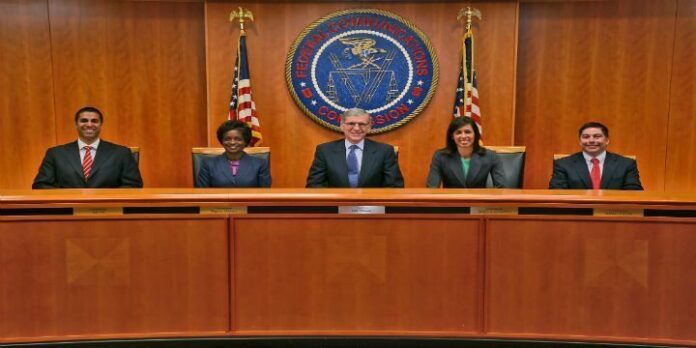The Federal Communications Commission announced last week that it was looking to forbid joint bids in the upcoming 600 MHz incentive auction scheduled to occur sometime in mid-2015. That move would seem to target Sprint and T-Mobile US, which hve reportedly been in talks about pooling their resources to the tune of approximately $10 billion to prepare for the auction.
In commenting on the proposal, FCC Wireless Bureau Chief Rodger Sherman stated, “If two of the largest companies are able to bid as one combined entity in the auction, their combined resources may have the effect of suppressing meaningful competition. Therefore, the item tentatively concludes that joint bidding arrangements between nationwide providers should not be allowed.”
The potential for a combined Sprint/T-Mobile US bidding entity was noted to be part of a $45 billion financing package being put together by Sprint parent company Softbank in order to acquire control of T-Mobile US from Deutsche Telekom.
The FCC has proposed to place limits on certain potential spectrum license participants, noting that no more than 30 megahertz of spectrum will be set aside in all markets in a reserved manner for those participants holding less than one-third of spectrum in those markets below the 1 GHz level. That rule is most pointedly targeted at the likes of Verizon Wireless and AT&T Mobility, both of which control a lion’s share of the nation’ sub-1 GHz spectrum, and follows guidelines proposed by T-Mobile US last year as part of its “dynamic market rules” filing.
That initial proposal was followed up with changes to the FCC’s spectrum screen policy that included a greater amount of spectrum currently in the hands of wireless operators. That change included a move to include a considerable amount of 2.5 GHz spectrum, which Sprint currently controls and if combined with T-Mobile US would prevent either carrier from bidding on 600 MHz spectrum reserved for smaller operators. The FCC noted in its rules that any sort of change in the current market conditions “affecting the top four nationwide providers and their spectrum holdings” would result in the government agency reviewing its initial plans for reserved spectrum being set aside for the 600 MHz spectrum auction.
–The FCC threw its support behind President Obama’s recent signature on legislation that allows consumers to unlock their mobile devices in order to take those devices should they change carriers.
“This new law is a positive development that addresses the issues that triggered unlocking concerns in the first place,” said FCC Chairman Tom Wheeler. “When the wireless industry worked with the FCC on a voluntary agreement to unlock devices when consumers’ contracts have been fulfilled, they took an important step forward. The President’s signature today makes greater consumer choice the law of the land.”
The bill was passed by Congress late last month, and signed into law earlier this week. The wireless industry has been somewhat muted on the bill, with wireless trade association CTIA noting that it had already worked with the FCC and its carrier members to adopt a voluntary measure to allow for handset unlocking, while the Competitive Carriers Association was more vocal in its support of the legislation.
Wheeler late last year sent a letter to CTIA, an organization he had previously led, asking that the trade association include device unlocking into the consumer code that its member carriers have voluntarily committed to providing. CTIA and five of its largest carrier members adopted the voluntary proposal last December.
Make sure to keep up-to-date on policy news by visiting RCR Wireless News’s Policy page.
Bored? Why not follow me on Twitter?

Policy: FCC looks to prohibit joint bids in upcoming auction
ABOUT AUTHOR
